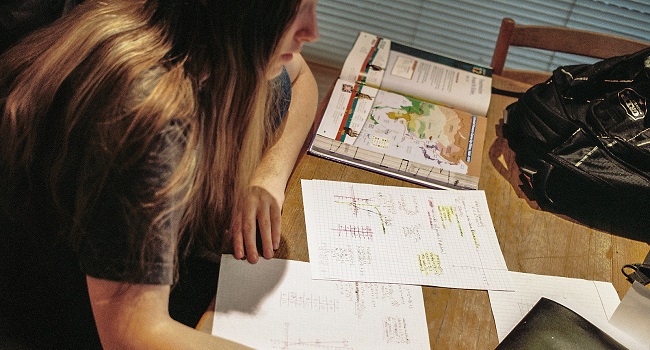Dublin’s Larkin Community College has been working with the Abbey Theatre to bring a terrific new surge of creativity into their classrooms. The legendary theatre, also known as Amharclann na Mainistreach and the National Theatre of Ireland, has been working with the local college on their Theatre-Making and Citizenship programme. According to the Irish Times, this initiative has seen students hugely invested in creative learning.
Byron Court has the advantage of being located in a desirable neighbourhood of Wembley. As an ‘outstanding’ school (Ofsted 2012) we are able to attract excellent and creative teachers, ones who are committed to providing our pupils with a solid education as well as extra curricular opportunities that enable all children to succeed and gain confidence in their abilities.
Bowie. David Bowie. Yes, that’s right, the chameleon of pop music. What would Bowie do if he was in charge of the education system? This is a question I have been coming back to over the last few months. With all the educational changes, upheaval and strikes, I have been thinking more and more about what would happen and change if Bowie was in charge.
The writing is already on the wall, so its not about becoming an eco warrior for me, it's about taking the opportunity to use technology to up skill those students currently schooling in the rainforest. Oil boom towns such as Coca mean young people can quickly find themselves pulled into the drugs or prostitution trade. So the need for an education is extremely important for these young people.
In 1994 I started my teaching career. I am a modern languages teacher. I love languages, and I love inspiring my pupils to learn about other languages and cultures. When I first entered the classroom all those years ago, my main aim was to be a good teacher. I had not given much thought to how I was going to achieve my aim, or indeed what it even meant to be a good teacher. I was young, enthusiastic, full of energy and positive. Surely, with these attributes, I would achieve my goal, no matter how idealistic it may have seemed?
Like SPECTRE in James Bond, those who identify as being geeks are now beginning to infiltrate the highest and most influential positions in society. Given that the role of an educator is about as influential as you can get, many teachers consider themselves as such. Teacher Rachel Jones, herself a huge advocate of geekiness, examines how this mindset and identity affects education.

Let us look to the glorious Urban Dictionary for our definition of geek:
“Geeks are superior to all other people because they have the knowledge and social ability to get to where they want to be.”
Arguably more than any specialist area of education, SEN pupils require certain qualities for a good education. Here, Nicky Broomhall, Principal at Star Academy Sandyford, discusses how her school has embraced SEN teaching.

As special needs programmes have become an increasingly important consideration for mainstream educational institutions, SEN provision is now a hot topic of discussion for primary schools striving to offer that extra level of support to their pupils.
Given how coding has ruled the headlines in recent months, most teachers are discussing the pros and cons of the matter. Peter Mason, an avid computing enthusiast, discusses why he considers the changes to be positive.

Unless you've been hiding under a rock for the past year, you won’t have missed the changes to the National Curriculum that are taking place. These changes include a controversial shift in focus from ICT to computing. Starting from September this year, the National Curriculum will emphasise on empowering pupils to be the next generation of creators - not just passive consumers. The means to achieving this is teaching children to code.
The controversy hasn't stopped at the National Curriculum. The Government has recently put its weight behind the Year of Code campaign, with a launch that appears to have been criticised by everyone from educators to businesses. Myths abound on what programming is and isn't at the moment, but one fact is that computer programming isn't for everyone, just like art isn’t. There are, however, some great reasons to teach kids to code.
The education discussions, in the online space, are filled with efforts to find the appropriate role for technology in the classroom. No longer are desktop and laptop computers the main focus; it is the new "kids" on the block, such as the iPhone, iPod and iPad, that have moved the discussion ahead at warp speed. Mobile devices, no matter how excellent, are not an answer onto themselves -- they have to fit into the holistic concept of a teaching system. In response, teachers are literally grappling with these new platforms vis a vis teaching and their integration into the classroom.

A community-driven platform for showcasing the latest innovations and voices in schools
Pioneer House
North Road
Ellesmere Port
CH65 1AD
United Kingdom